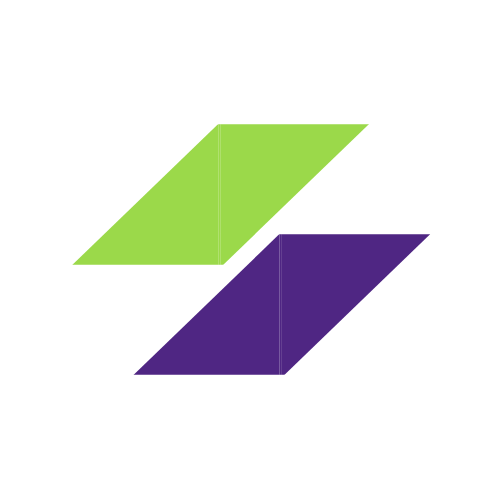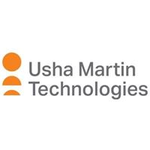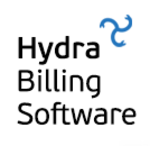Description

SAG XdExcise

Smart Workshop
Comprehensive Overview: SAG XdExcise vs Smart Workshop
To provide a comprehensive overview of SAG XdExcise, Smart Workshop, and Webtel e-Invoicing, let's break down each product in terms of its primary functions, target markets, market share, user base, and key differentiating factors.
SAG XdExcise
a) Primary Functions and Target Markets:
- Primary Functions: SAG XdExcise is a software solution designed to handle excise taxation processes. It automates the computation, management, and reporting of excise duties for manufacturers and dealers, particularly in sectors like manufacturing, alcohol, tobacco, and petroleum.
- Target Markets: Its primary market includes manufacturing industries and businesses that deal with excisable goods where compliance with government regulations on excise duties is mandatory.
b) Market Share and User Base:
- XdExcise targets a niche segment focused on excise duty management and compliance, so it likely has a smaller, more specialized user base compared to broader accounting or tax software solutions.
c) Key Differentiating Factors:
- Specialization in Excise Complexity: XdExcise is tailored specifically for excise tax compliance, offering deep functionalities specific to this area, which more generalized accounting software may not cover.
- Regulatory Compliance: It provides updated features in line with the changing governmental excise policies, which is crucial for businesses that must adhere strictly to regulatory demands.
Smart Workshop
a) Primary Functions and Target Markets:
- Primary Functions: Smart Workshop is a solution that integrates various aspects of workshop management, including scheduling, inventory management, billing, customer management, and reporting.
- Target Markets: It primarily targets automotive repair shops, service centers, and similar businesses where effective workshop management and customer service are crucial.
b) Market Share and User Base:
- In the automotive service industry, Smart Workshop may hold significant appeal for medium-sized workshops looking to streamline operations, but it competes with other established players in the workshop management space.
c) Key Differentiating Factors:
- Comprehensive Workshop Features: Offers detailed tools specific to managing the multifaceted operations of a workshop, from customer billing to parts inventory management.
- Customization for Automotive Needs: Built with the automotive service industry in mind, offering features that are specifically relevant to this industry's processes and requirements.
Webtel e-Invoicing
a) Primary Functions and Target Markets:
- Primary Functions: Webtel e-Invoicing software enables businesses to generate, manage, and store electronic invoices in compliance with government regulations. This includes integration with accounting systems for seamless invoicing processes.
- Target Markets: Small to medium businesses across various sectors that are required to adopt e-invoicing to adhere to tax regulations are the primary targets. Its broad functionality serves industries ranging from retail to manufacturing.
b) Market Share and User Base:
- With the global shift toward digital invoicing mandated by government policies, webtel e-Invoicing sees widespread implementation. Its user base is likely mixed, comprising both small businesses and larger companies looking to ensure regulatory compliance.
c) Key Differentiating Factors:
- Regulatory Compliance: A strong focus on meeting the latest e-invoicing regulations and standards helps businesses stay compliant without needing in-depth technical knowledge.
- System Integration: The ability to integrate with existing ERP and accounting systems is crucial, allowing easy incorporation into the current business processes.
Comparative Analysis
- Market Share and User Base: Webtel e-Invoicing likely has a broader market presence due to the universal need for digital invoices, especially as more countries impose regulations. Smart Workshop and SAG XdExcise may have smaller but more niche markets.
- Differentiation: Each product is distinctly tailored to its market niche. XdExcise focuses exclusively on excise taxes, Smart Workshop caters specifically to automotive technicians, while Webtel aims for broad applicability in e-invoicing across various industries.
- User Experience: Each software offers specialized functionalities that provide significant benefits within their focus areas, with customization options relevant to their respective sectors.
Conclusion
Each of these solutions addresses specific needs and industries, with varying market reach and specialization levels tailored to their target audiences. Businesses would choose among them based on industry requirements, regulatory compliance needs, and the level of integration required with existing systems.
Contact Info

Year founded :
Not Available
Not Available
Not Available
Not Available
Not Available

Year founded :
Not Available
Not Available
Not Available
Not Available
Not Available
Feature Similarity Breakdown: SAG XdExcise, Smart Workshop
To provide a feature similarity breakdown for SAG XdExcise, Smart Workshop, and Webtel e-Invoicing, it’s important to consider the core functionalities, user interfaces, and any unique features that distinguish each product. Note that the specifics may vary based on the latest versions or updates to these products.
a) Core Features in Common
While each of the three software addresses different aspects of business operations, they do share some common features, especially in the realm of financial management and compliance:
-
Invoicing and Billing:
- All three platforms support invoicing solutions, allowing users to generate, send, and manage invoices electronically.
-
Compliance and Taxation Management:
- Each software is designed with features aimed at ensuring compliance with tax regulations and excise duties.
-
Data Management and Reporting:
- These platforms provide robust data management capabilities, facilitating the storage, processing, and retrieval of transaction data. They also include reporting tools to generate insights for compliance and business analytics.
b) User Interface Comparison
-
SAG XdExcise:
- Primarily focused on excise and compliance, its user interface is likely designed for ease of navigating complex tax data. It may lean towards a more technical user experience, given its target audience of tax professionals.
-
Smart Workshop:
- This product, assuming it caters to workshop management, likely has a workflow-oriented UI. The interface might emphasize job tracking, scheduling, and operational dashboards, catering to users looking for seamless task management.
-
Webtel e-Invoicing:
- As a broad invoicing solution, its interface is expected to be more user-friendly with a focus on simplifying invoice creation and management. It’s likely designed to be intuitive for a variety of users, from small businesses to larger corporations.
c) Unique Features
-
SAG XdExcise:
- Specialized Tax Compliance Tools: Features that specifically cater to excise duty calculations and compliance reporting might set it apart, making it indispensable for industries dealing with specific goods subject to excise.
- Integration with Government Portals: It may offer unique integration capabilities for direct submission to government compliance portals, streamlining compliance workflows.
-
Smart Workshop:
- Job Management: Unique features might include job cards, resource allocation, and time-tracking specific to maintenance and repair operations.
- Inventory Management: Features that assist with parts and supplies management specific to workshop environments could be a key differentiator.
-
Webtel e-Invoicing:
- Geographical Compliance: Webtel’s invoicing solutions might offer unique capabilities tailored to varying international tax compliance requirements, making it suitable for businesses operating in multiple regions.
- Advanced Reporting and Analytics: It may provide advanced customizable reports specific to invoicing analytics, offering deeper insights into billing cycles and client payment patterns.
In summary, while these platforms share common ground in financial and compliance management, they distinguish themselves through specialized features tailored to their primary function—excise compliance for SAG XdExcise, workshop operations for Smart Workshop, and international invoicing for Webtel e-Invoicing. For exact features and capabilities, it would be beneficial to refer to the official documentation or conduct a product trial for each software.
Features

User Management
Tax Calculation and Compliance
Reporting and Analytics

User-Friendly Interface
Collaboration Tools
Comprehensive Reporting
Efficient Task Management
Best Fit Use Cases: SAG XdExcise, Smart Workshop
Certainly! Let's explore the use cases and suitability of SAG XdExcise, Smart Workshop, and Webtel e-Invoicing:
a) SAG XdExcise
Best Fit Use Cases:
- Types of Businesses/Projects: SAG XdExcise is particularly well-suited for businesses dealing with excise duties, such as manufacturers and distributors of excisable goods (e.g., alcohol, tobacco, fuels). It is ideal for companies requiring accurate excise tax calculations and compliance.
- Industries: It serves industries like manufacturing, logistics, and retail, where excise taxation plays a critical role.
- Business Needs: The tool is beneficial for large enterprises and corporations that need robust solutions for excise duty management, requiring integration with SAP or similar ERP systems.
Catering to Industry Verticals/Company Sizes:
- SAG XdExcise is typically aimed at large-scale operations dealing with complex excise regulations. It offers compliance solutions for industry-specific excise calculations and is adaptable to various international excise laws.
b) Smart Workshop
Best Fit Use Cases:
- Types of Businesses/Projects: Smart Workshop is ideal for automotive workshops and service centers looking to optimize their operations. It helps manage service appointments, inventory, and customer interactions efficiently.
- Industries: This product is designed for the automotive industry, including car service centers, repair workshops, and maintenance facilities.
- Business Needs: It's particularly beneficial for small to medium-sized businesses aiming to enhance workflow management and improve customer service through digital scheduling and inventory tracking.
Catering to Industry Verticals/Company Sizes:
- Smart Workshop caters to small and medium-sized automotive service businesses. It provides industry-specific tools that help streamline operations, improving efficiency and customer satisfaction.
c) Webtel e-Invoicing
Best Fit Use Cases:
- Types of Businesses/Projects: Webtel e-Invoicing is best suited for businesses required to issue electronic invoices or integrate with government-mandated e-invoicing systems. It is useful for companies needing automated solutions for invoice generation and compliance.
- Industries: It is applicable across various industries, particularly those where e-invoicing is mandatory for tax compliance. This includes sectors like retail, wholesale, and services.
- Business Needs: Best for businesses of all sizes looking to ensure compliance with e-invoicing laws and streamline their billing processes to reduce manual errors.
Catering to Industry Verticals/Company Sizes:
- Webtel e-Invoicing serves a broad range of industries due to the universal need for invoicing. It scales from small enterprises to large corporations, providing flexible solutions that integrate with existing accounting systems and meet statutory requirements.
Summary
- SAG XdExcise: Ideal for large enterprises in industries affected by excise taxes, providing precise compliance and integration with ERP systems.
- Smart Workshop: Suited for automotive SMEs seeking operational efficiency and better customer service in service management.
- Webtel e-Invoicing: Fits businesses of all sizes across various sectors needing compliant e-invoicing solutions for efficient and error-free billing.
Each product addresses specific industry needs and organizational sizes, allowing businesses to select the tool that best aligns with their operational requirements and regulatory environments.
Pricing

Pricing Not Available

Pricing Not Available
Metrics History
Metrics History
Comparing undefined across companies
Conclusion & Final Verdict: SAG XdExcise vs Smart Workshop
To determine which product offers the best overall value between SAG XdExcise, Smart Workshop, and Webtel e-Invoicing, let's evaluate the pros and cons of each and provide specific recommendations.
SAG XdExcise
Pros:
- Industry Focus: Tailored for businesses that require detailed excise management. Particularly beneficial for sectors with complex excise duties.
- Comprehensive Features: Offers robust functionality for managing compliance and reporting obligations related to excise duties.
- Integration: Generally compatible with various ERP systems, enhancing workflow efficiency.
Cons:
- Complexity: May require a longer learning curve and potentially more staff training due to its comprehensive nature.
- Cost: Can be more expensive initially because of its breadth of features and industry specialization.
Smart Workshop
Pros:
- User-Friendly: Known for its intuitive interface, making it ideal for users who prefer simplicity without sacrificing essential functionality.
- Cost-Effective: Often offers a good balance of essential features at a competitive price, which can be appealing for small to medium-sized enterprises.
- Customization: High degree of customization options that cater to specific workshop needs.
Cons:
- Limited Scope: Might not provide as in-depth solutions for complex excise or invoicing needs as the other two products.
- Scalability: May not scale as effectively for larger enterprises with more complex operations.
Webtel e-Invoicing
Pros:
- Compliance-Oriented: Excellent for businesses seeking robust e-invoicing solutions that comply with GST and other regulatory requirements.
- Automation: Provides good automation tools that simplify and streamline invoicing processes.
- Cost-Effectiveness: Tends to be competitively priced, especially for businesses heavily focused on invoicing needs.
Cons:
- Scope Limitation: Primarily focused on invoicing, which may not cover other broader accounting needs.
- Integration: While generally good, it might face limitations when integrating with systems outside its primary function.
Conclusion and Final Verdict
a) Best Overall Value: The best overall value depends significantly on the specific needs of the business. For companies focused predominantly on excise duties, SAG XdExcise delivers a superior, albeit more complex, solution. For those prioritizing ease of use and an all-rounder at a reasonable price, Smart Workshop is a compelling choice. In contrast, businesses looking for a cost-effective, compliance-oriented e-invoicing solution should consider Webtel e-Invoicing.
b) Pros and Cons Summary:
- SAG XdExcise: Best for comprehensive excise management but with higher complexity and cost.
- Smart Workshop: Offers ease of use and customization at a fair price but may lack advanced features for larger enterprises.
- Webtel e-Invoicing: Ideal for businesses with a primary focus on compliant invoicing, but limited outside this scope.
c) Recommendations:
- Evaluate your primary business needs: Are you managing excise duties, focusing on workshop management, or streamlining invoicing?
- Consider scalability: Choose a solution that will support future growth, particularly if your current needs may expand.
- Cost vs. Features: Determine which features are essential for your business and compare them against the cost to find the best match.
- Trial Periods: If available, utilize trial periods or demos to get hands-on experience with each product's user interface and capabilities.
Ultimately, selecting between these products depends on aligning their primary strengths with your business's strategic goals.
Add to compare
Add similar companies



